Team Ninja has built a name for itself over the years. From Ninja Gaiden to Nioh, the studio is known for capitalizing on fast-paced, technical combat with a level of fluidity that few games can match. From the moment you pick up the controller with any of these, you know you’re playing a Team Ninja game.
It’s this DNA that runs through Stranger of Paradise: Final Fantasy Origin. It’s not as accomplished as the aforementioned efforts, but it’s still a strong action RPG that sets a new standard for real-time combat within the overarching Final Fantasy franchise.
Stranger of Paradise: Final Fantasy Origin Review — Nearly Unrestrained Chaos
If you’ve paid attention to its pre-release marketing, Stranger of Paradise has garnered a reputation for its cheese. From Jack Garland busting out emo music after a JRPG monologue to interrupting a boss’ introduction with an expletive and fist to the face, it oozes confidence.
If these moments captured your attention, you’ll be disappointed to find that the final product hardly reflects the cherry picked scenes circulating online. The vast majority of the story takes itself too seriously with a straightforward plot about ridding the world of Chaos. To its credit, the plot does become more complex as it progresses.
Unfortunately, that escalating plot is hamstrung by poor pacing. Most cinematics rarely justify their existence, and you’ll often begin a level with the squad saying something to the effect of, “let’s move on,” with that being the extent of many cutscenes. When the infrequent plot beats do occur, the script makes it difficult to grow attached to anything or anyone. Most of the truly intriguing narrative bits are locked behind optional lore entries found in the final hours.
Stranger of Paradise showed signs of being a truly admirable B-movie game. More often than not, however, it languishes in plain mediocrity rather than enjoyable cheese.
Time to Meet Chaos
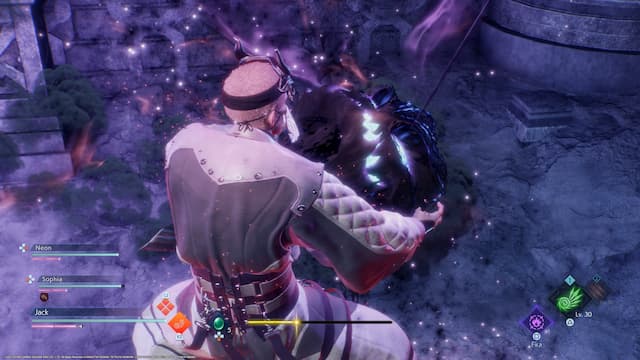
Luckily, Stranger of Paradise nails its core combat and role playing systems. True to Team Ninja’s legacy, it is filled with layers upon layers of mechanics. If you’re in the market for something chunky that requires dedication and mastery, Stranger of Paradise is right up your alley.
To begin with, there’s a fascinating interpretation of the Final Fantasy magic system. By default, you begin each mission with two bars of MP, which all abilities hinge upon. You can gradually increase your maximum MP gauge for a mission by performing Soul Burst finishing moves, which requires depleting enemy break gauges.
So many factors influence this, with different jobs, weapons, and enemies varying their associations with the break gauge. For example, knuckles have their own system whereby the more you wail on foes, the more damage you’ll do to both their health and break gauges. The Duelist job, on the other hand, has an ability that deals guaranteed critical damage, which targets the break gauge more than the health bar.
It isn’t just AI that is beholden to such a system. Your break gauge also plays a crucial role in Stranger of Paradise’s skill ceiling. While standard blocks are always an option, expending magic allows you to use the Soul Shield. Properly timing the Soul Shield without depleting the break gauge opens enemies for a follow-up attack, increasing your max MP just as with the Soul Bursts.
Adding an extra layer of depth, many enemies have specific abilities that can be stolen through the use of a Soul Shield and banked for later use. This is all without touching upon the concept that each death reduces your max MP, forcing you to become hyperaware of these systems.
Commendations are also in order for Team Ninja’s ability to translate so many classic Final Fantasy jobs into such a fast-paced setting in a way that complements its vision while remaining true to their spirit.
The Thief, for example, is often associated with stealing items or gold. It’s a JRPG staple. Due to Stranger of Paradise’s design and structure, there is no gold, and the only items that exist are either potions or shards used to level up classes. How does the Thief work in Stranger of Paradise, then? Its job ability snatches foes’ instant abilities instead, letting you bypass the waiting game.
This attention to detail extends throughout the experience. It runs deeper than a malleable job system that empowers you through distinct options that honor the series’ legacy. Many levels also play some sort of homage to a prior mainline Final Fantasy title.
Even when Stranger of Paradise is riffing off an older entry, it isn’t obvious unless you’re intimately familiar with the installment in question. Levels are often based on old locations, using gimmicks inspired by those entries without feeling like retreads.
There’s one level that draws from Final Fantasy 13’s Sunleth Waterscape, replete with a forest containing orbs that influence the weather. In turn, these alter the available routes. Despite the weather altering orbs, it doesn’t feel like you’re running through an asset flip of one of the Final Fantasy 13 trilogy’s forest sections. This applies in equal measure to the remixed versions of classic Final Fantasy tracks.
Rather than a friend with a photographic memory recounting a past event beat for beat, it’s analogous to being asked what you remember from five years ago. The large strokes remain intact, with your mind filling in the blanks as you go. It’s familiar, but not overly so.
This Isn’t the Good Kind of Chaos
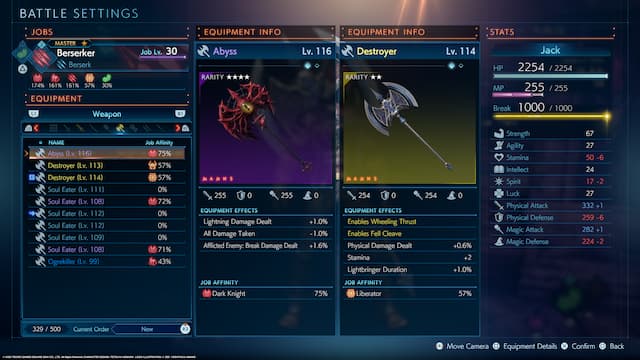
For all of its mechanical density, Stranger of Paradise fumbles balancing. With so many jobs to juggle and job affinities, which grant bonuses depending on the equipped gear, it needed a carefully considered loot system to succeed.
It fails on this front, however. You’re constantly acquiring more gear than you know what to do with, which you’ll want to dismantle between missions. Unfortunately, you also will want to save some gear for specific jobs because of their job affinities, but the rate at which gear drops demotivates this approach. This isn’t helped by an arbitrarily low carry capacity that doesn’t appear tuned to the frequency of loot drops and number of jobs.
As you move up the ladder from basic to advanced to expert jobs, further malleability is introduced. Most advanced and expert jobs can use more than one weapon type, for example. As this complexity piles on, the drive to keep up with loot and jobs diminishes.
By around the halfway point, you’ll probably settle on one pairing that works for you, rarely switching no matter how fun or useful it might be to do so occasionally. You won’t want to switch battle presets for a specific boss or area 25 hours in when your gear isn’t up to snuff, forcing you to either make do or farm the existing level until you get quality drops. This demotivation is only further exacerbated by the need to keep up with AI gear and jobs. The loot system doesn’t encourage experimentation in the way it should.
Feeling the Heat
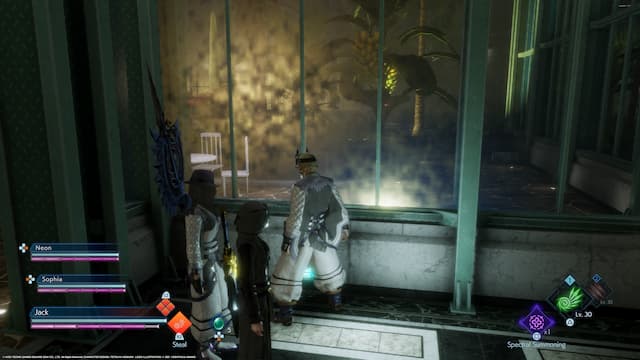
There’s also one major elephant in the room that needs to be addressed: performance. The PC version has come under specific criticism, but in actuality, no iteration of Stranger of Paradise: Final Fantasy Origin runs as well as it should. The PlayStation 5 and Xbox Series X performance modes both seem to run at 1080p with visual fidelity and art direction that’s a step below Nioh. Despite this technical makeup, it fails to hold a consistent 60 frames per second on either console.
The experience of playing Stranger of Paradise: Final Fantasy Origin on a next-gen console should have been comparable to the PlayStation 5 versions of Nioh and Nioh 2. Instead, it feels like you’re playing those games on a PS4 Pro, but with even worse performance.
It could come down to a lower budget. Maybe it’s due to Team Ninja abandoning its proprietary Nioh engine in favor of technology with which they’re less familiar. Perhaps both factors are to blame. Regardless, the end result is what matters most. By that account, Stranger of Paradise: Final Fantasy Origin is one of the most underwhelming cross-gen releases since the PS5 and Xbox Series X launched. A product bearing the Final Fantasy name, with such clear appreciation for the franchise, deserves a more lavish treatment than this.
Stranger of Paradise: Final Fantasy Origin Review — The Bottom Line
Pros
- Faithful reinterpretation of classic Final Fantasy jobs, mechanics, and levels
- Expansive job system with tons of distinction to suit any kind of player
- Well designed encounters and boss battles
- Fluid combat with plenty of depth
Cons
- Loot system fails to mesh with everything else
- Outdated visuals mixed with equally poor performance
Stranger of Paradise: Final Fantasy Origin is an endearing action RPG that takes careful steps with its reappropriation of traditional Final Fantasy systems. The translation to Team Ninja’s brand of fast-paced combat feels amazing when it’s firing on all cylinders. Unfortunately, it’s let down by technical issues and a loot system that actively pushes you away from messing around with its jobs in the way that it so desperately wants.
[Note: The reviewer purchased the copy of Stranger of Paradise: Final Fantasy Origin used for this review.]


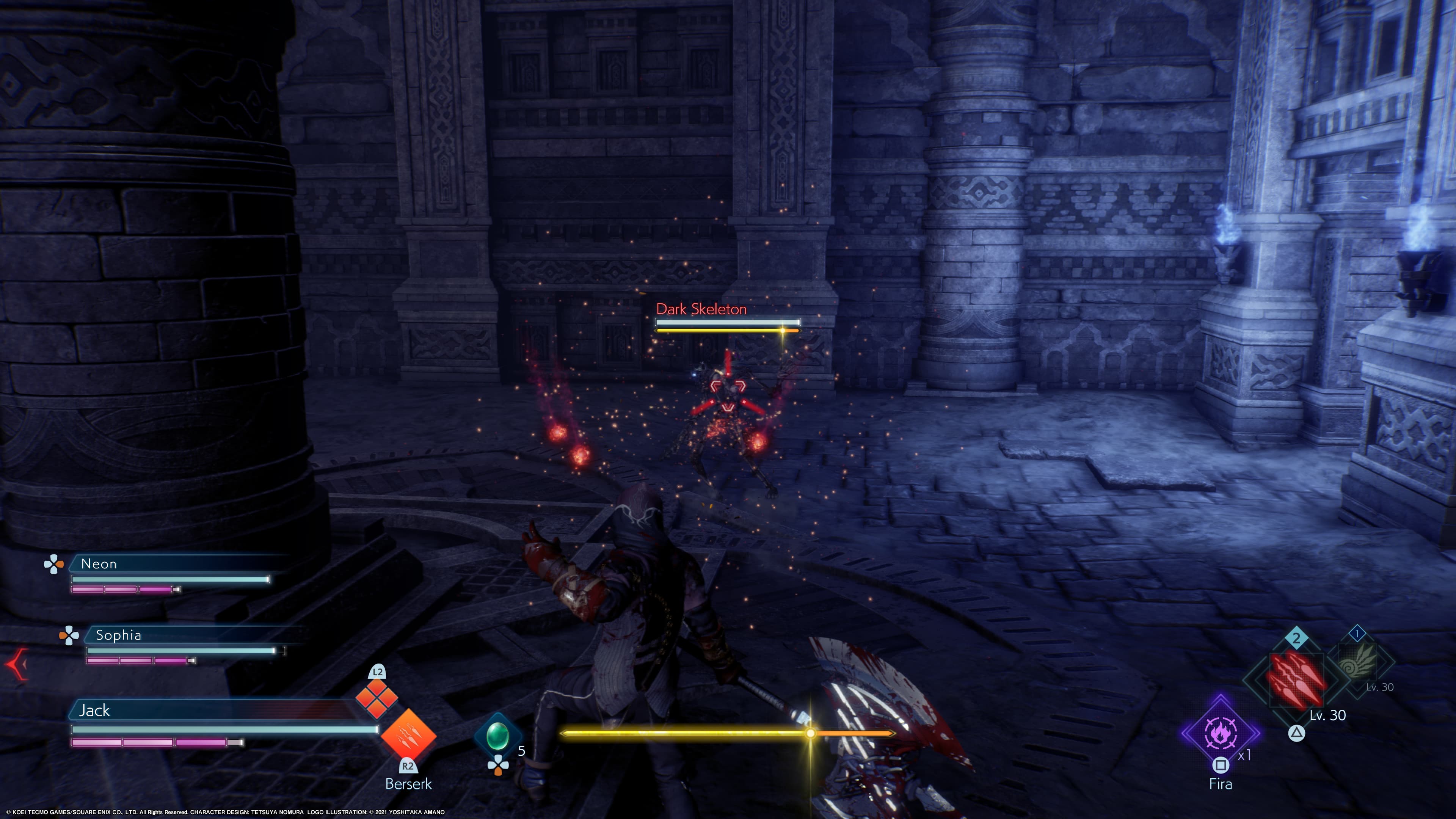
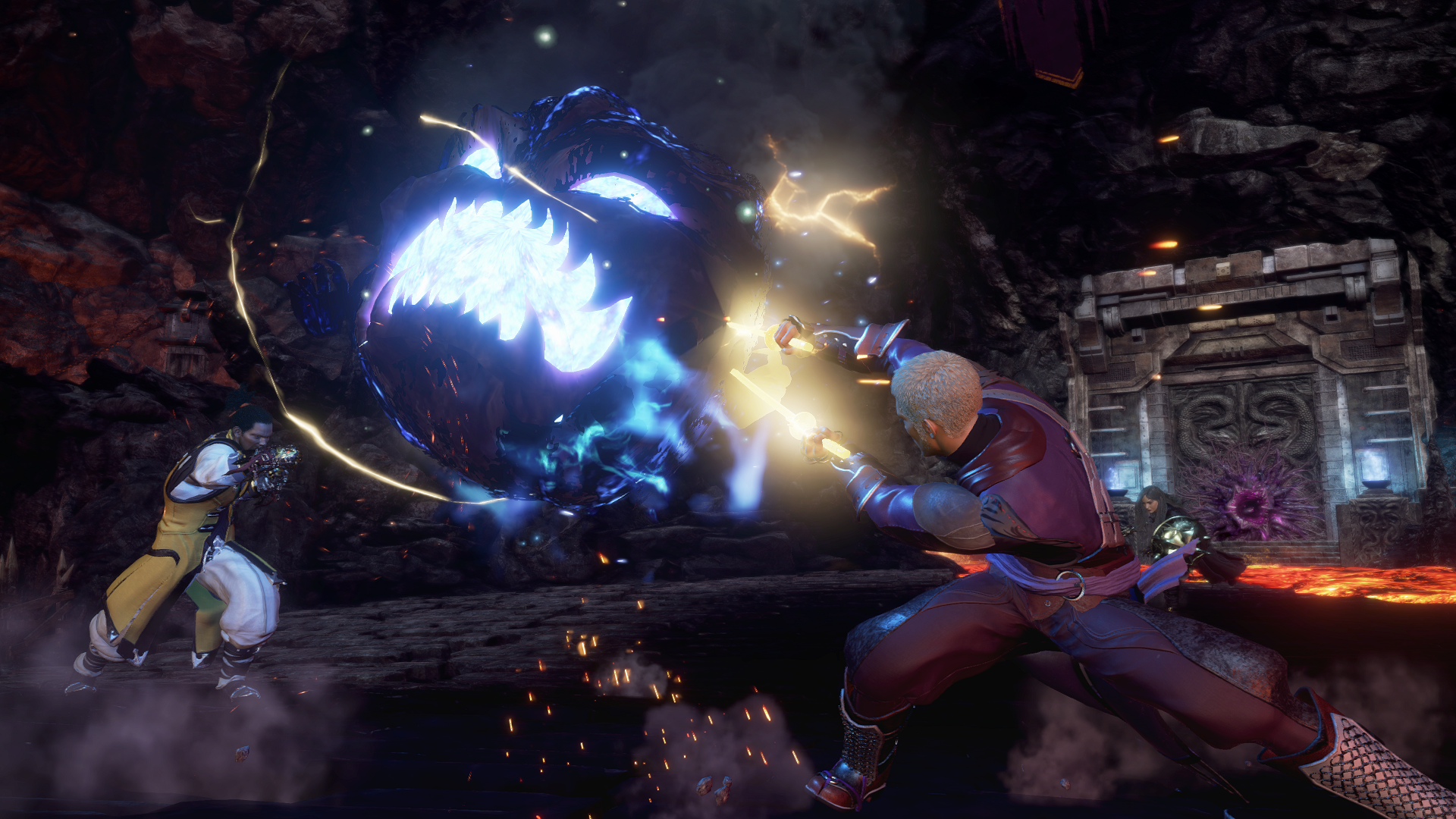





Published: Mar 24, 2022 01:36 pm